Oy Vey! Der Mensch Tracht: After 1975 RCA Rebuff, Stephen Michael Schwartz Plots Next Career Move-EXCLUSIVE INTERVIEW PT. 6
Odd jobs? Maybe, but Hollywood "odd jobs" can be fun, especially if you're 22, and run into celebs along the way!
The Yiddish expression, “Der Mensch Tracht, Un Gott Lacht,” means “Man plans and God laughs.”
“Four songs into the 1975 recording of my second album for RCA with a new producer, a collection of new songs, and a killer group backing me, I’m suddenly and unexpectedly released from my contract via telegram:
Stephen Michael Schwartz recalls that dark spring day, surrounded by a studio filled with rock’s best musicians: “I was told to vacate the studio and leave whatever tapes had been recorded with the head engineer. It seemed unfathomable to my 21-year-old brain, like someone was playing a bad prank. Once you’ve made the team, don’t you play until the game is over?
“I guess the game was over. I was not prepared to be rejected. I don’t recall it ever happening on this level in my life.”
“Superman or Green Lantern Ain't Got Nothin' On Me”
“Well, there was that one rainy day in junior high when the entire school gathered in the auditorium to eat lunch. Always with my guitar by my side, I saw a golden opportunity to entertain: A captive audience; it seemed perfect!
“With the encouragement of some of my friends, I pulled out my guitar, and bounded up the stage to the microphone and started singing.
“The song was ‘Sunshine Superman,’ a favorite of mine by Donovan.
“That first song seemed well received, but in the middle of my second song, the bell rang, signifying the end of lunch, and the entire school got up and rushed out the door, leaving only my so-called friends laughing hysterically as I walked off the stage…crushed. That was age 15. You get over those kinds of humiliations…or not.”
Der Mensch Tracht…
“Now, it’s 1975, and I’m 22. My record company, sounding their bell of ‘contract dissolution,’ walks out on me with a cold telegram defining their rights and reasons. This time, no one is laughing.
“‘It’s just the business of numbers and dollars,’ my attorney, Charles Meeker, explains. ‘We’ll find you another home,’ he assures. ‘I just want to go home,’ was my feeling.
“It was, in fact, my family, my close friends, and especially my girlfriend at the time, actress Wendy Schaal, who helped me through this dark time.
“Of course, there was still my music. Songwriting never seemed to abandon me. During this time, I believe I was writing some of my best songs, including the ironically-titled, ‘The Last Song (Is The Last I’ll Ever Write)’ with my favorite line:
‘My closest friend
Is my Fountain Pen,
And, he’s run out on me.’
“It’s perhaps a cliché, but it seems great works of art are too often pushed through the portal of sadness and despair. With my emotions frayed and my money dwindling, Wendy suggested we move in together as much for love as for financial reasons. A couple years later we would marry.”
“The way you hold your knife,
The way we danced till three,
The way you changed my life…”
“I was still performing in clubs regularly, staying connected to the fans I had made over the years, and using the promotional byline, ‘RCA Recording Artist, Stephen Michael Schwartz,’ to generate good press and increase my ticket sales.
“To quote the great Cole Porter song, ‘No, No, they can’t take that away from me.’
“I was booked to play some pretty interesting shows during this time. One such show was at The Boarding House in San Francisco, August 5, 1977: I opened for comedian, Henny Youngman, the ‘King of the One-Liners.’”
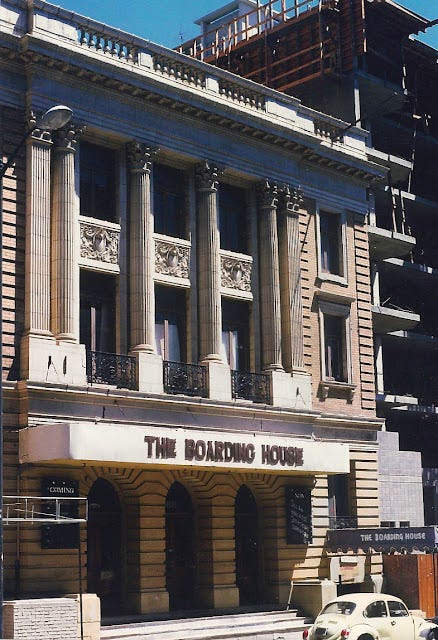
“Well into his late seventies by this time, Mr. Youngman enjoyed a large cult, college-aged following. One of the things I remember most about this gig was backstage after Mr. Youngman’s show, where he’d be met by throngs of young people, like comedy groupies or maybe wannabe comedy writers, who would literally pitch him jokes.”
Classic 3-minute Youngman bit on a 1969 Ed Sullivan Show:
“Mr. Youngman would say, ‘I’ve heard that one,’ and move quickly to another person. These were fast one-liners being thrown his way, and Mr. Youngman knew them all! If he heard one he liked, he would pull out a twenty-dollar bill from his pocket, and pay the person right on the spot! I don’t know if he ever really used the jokes he bought, but it seemed to be a well-known ritual with his fans, and a clever gimmick.”
“Another gig I did was at The Ice House in Pasadena (pictured above). I did four nights with the 1960’s pop group, The Association. That was a lot of fun. They were such a beloved group with so many mega-hits like ‘Never My Love,’ ‘Cherish,’ ‘Along Comes Mary,’ and ‘Windy.’ The audience sang along, and couldn’t get enough.”
Here’s a well-presented, fast-paced band bio on The Association. In the “Did You Know?” department, we discover Frank Zappa was an early Association auditionee, and an eventual Led Zeppelin song had its start as an Association single!
“I even played the now defunct Playboy Clubs in Chicago, New York and Los Angeles. I was a bit out of my element playing my style of what would now be termed ‘indie rock’ to the mostly male business clientele that frequented the private ‘Card Members Only’ clubs. I held it as just another gig. The waitresses loved me, however.
“I still have my Playboy key card tucked away somewhere. Times change, and the bunnies have all hopped away.”
“I still needed to supplement my income, and so I took some interesting jobs along the way:
“I worked for a brief time at a unique West Hollywood restaurant called, The Great American Food And Beverage Company, where almost the entire staff was comprised of performers, singers and songwriters.
“Some well-known celebrities worked there for a spell, including singer-songwriter, Katey Sagal (Married…With Children), Rickie Lee Jones, Michael Winslow, Eric Lowen (of Lowen and Navarro), a post-Monkees Peter Tork, my girlfriend, Wendy Schaal (voices Francine in American Dad), and my long time friend Janice Hubbard, who would later join me as one-third of my musical trio, Parachute Express (more on them later).
“I also worked part time at a health food store in West Hollywood called Aunt Tilly’s. In 1976, this was a unique store selling fresh squeezed juices, organic foods and vitamin supplements, and was a precursor to what is now Whole Foods.
“Many celebrities frequented Aunt Tilly’s, such as Barbra Streisand, Ringo Starr, Ryan O'Neal, Marlon Brando and my favorite, Brian Wilson of the Beach Boys. Brian would come in to buy a dozen or so bottles of ‘Gypsy Boots’ fresh-squeezed carrot juice.
“He must have been on some kind of juice diet. This was a ritual. With bunches of bottles of it in his cart, he would crack open one on his way to the checkout counter and guzzle away. No words, just an orange upper lip! He loved his carrot juice.
“I drank so much carrot juice, myself, while working at Aunt Tilly’s, that my skin began taking on an orangish tint: Carotene overkill, I guess. My doctor suggested I might want to cut back!
“Wendy and I, now committed to our careers and our relationship, moved into a little house in West Hollywood which had easy access to all of the movie studios, recording studios, and various music clubs.
“A little history about Wendy: We met in 1968 at an art fair in the little community of Valyermo, east of Palmdale in the Mojave Desert. It was Saint Andrew’s Abbey 11th Annual Valyermo Fall Festival.”
“Every year in September, since 1957, the Benedictine Monks of St. Andrew's Abbey would open their doors to the public. It was a a joyous celebration of food, art and music with all proceeds benefiting the monastery.”
“I would go there each year to volunteer and entertain. I was fifteen and she was fourteen.
“Wendy’s father was the well-respected comic actor/writer/director, Richard Schaal (who passed away in 2014 at 86), married to the late Valerie Harper (of Mary Tyler Moore and Rhoda sitcom fame), who passed in 2019 at 80. Valerie was Wendy’s step-mother from the time Wendy was 13.
“Valerie and Dick were the quintessential, artistic Hollywood couple whose home was a magnet for actors, poets, musicians, and modern day philosophers.
“This was the world Wendy grew up in, and being exposed to such a bohemian and eclectic lifestyle made her quite sophisticated beyond her years…at least from my lower-middle class, Jewish vantage point.
“I was not only taken in by her physical beauty, but drawn to her free spirit and sense of creative adventure in both heart and mind.
“During the years after my RCA rejection, and before my next big artistic adventure, Valerie and Dick’s home (along with my deepening relationship with Wendy) was a place I could count on as a safe haven to soothe my soul and lift my spirits.
“While Wendy would go on numerous acting auditions throughout the day, I would be home writing songs, setting up meetings, and making plans for what was to be my career next move. I was also starting to co-write and collaborate with other like-minded songwriters at this time.
“My old songwriting friend Henry Marx re-entered my life, and began setting me up to write with his artist, Bobby Caldwell (1978’s Top Ten ‘What You Won’t Do For Love’), and Toni Stern (Carole King’s co-writer on such songs as, ‘It’s Too Late,’ ‘Where You Lead,’ and other songs on the iconic Tapestry album).
“Collaborating was new for me and appealed to my natural instinct of ‘playing well with others.’ This was a very prolific and creative time for me. There wasn’t a lot of money coming in, but wonderful music and lasting friendships being formulated.
“Wendy soon got her first big break being cast in the Academy Award-winning film, Bound For Glory, the story of folk-singing legend Woody Guthrie, starring David Carradine.
“It was the beginning of a long, illustrious career that lasted much longer than our marriage of ten years. Wendy and I married in 1977, and divorced in 1987. Our best work was our son, Adam, born Feb 4, 1982.”

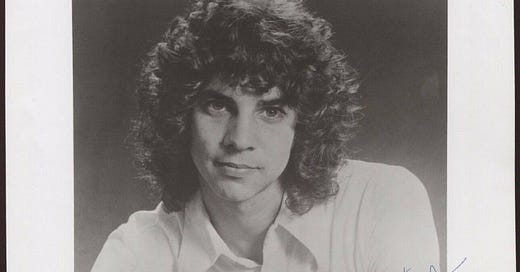





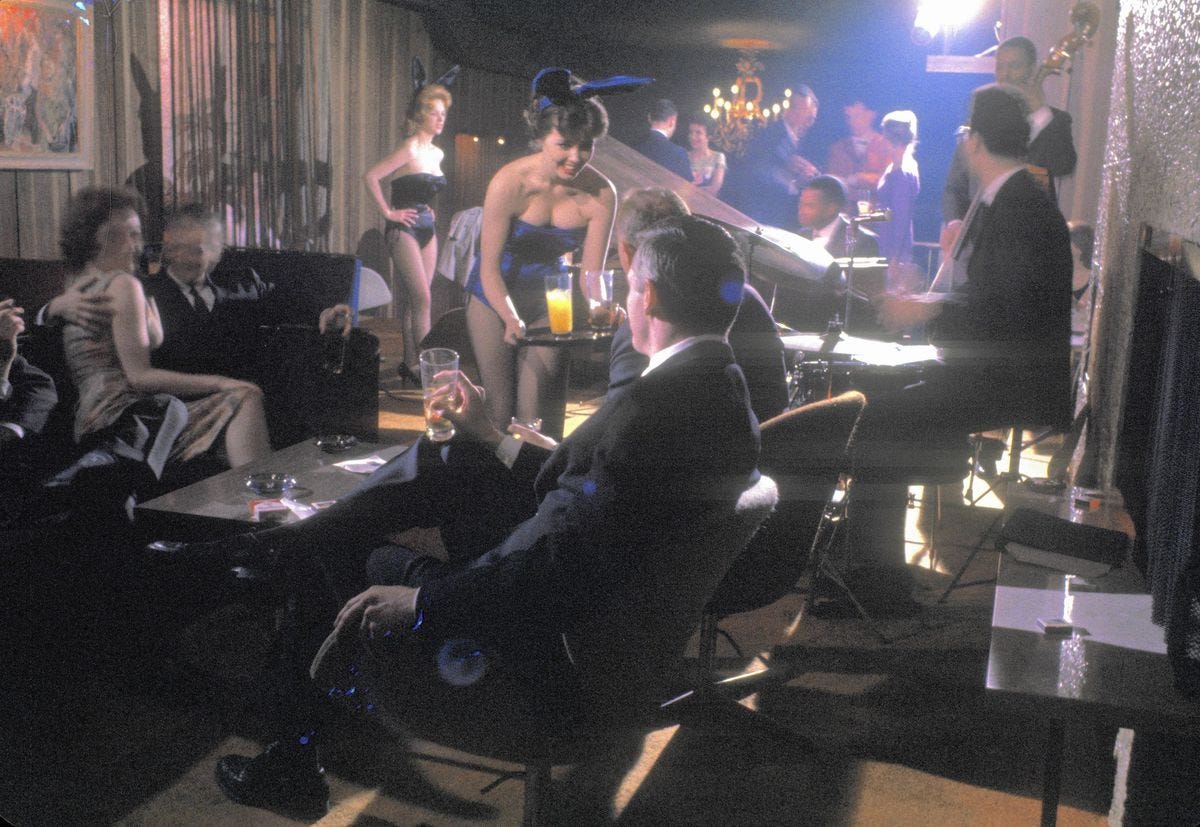
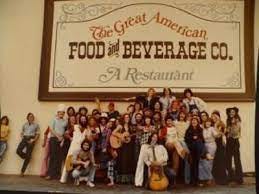
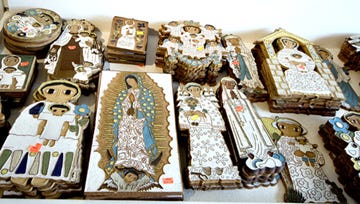
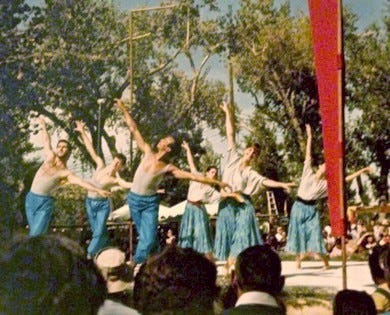
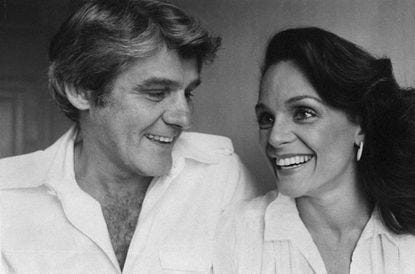
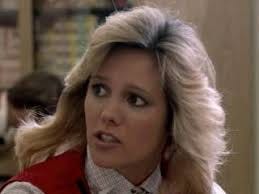
Another great post with fascinating backstories. Love The Association inclusion - first LP I ever purchased!!